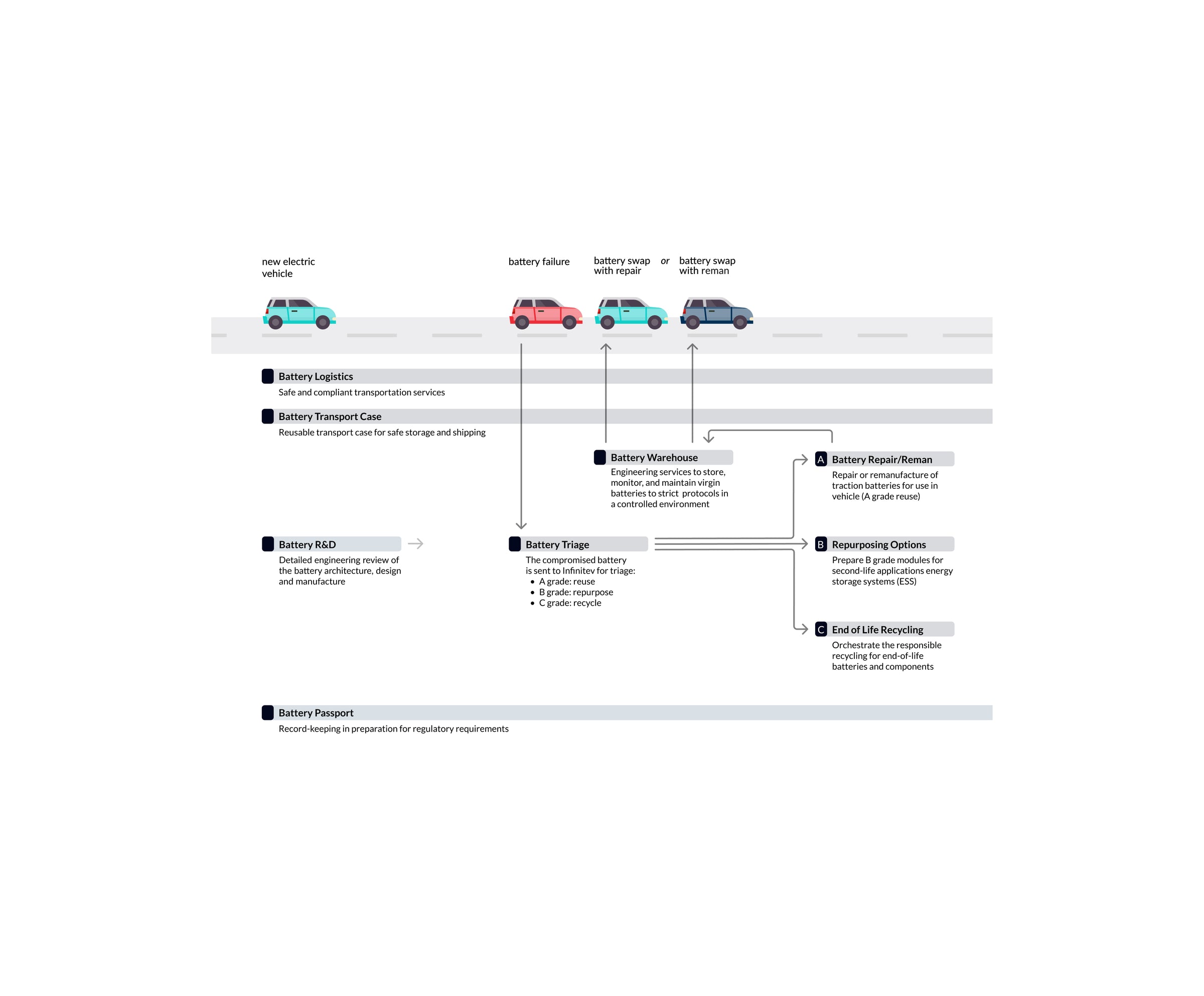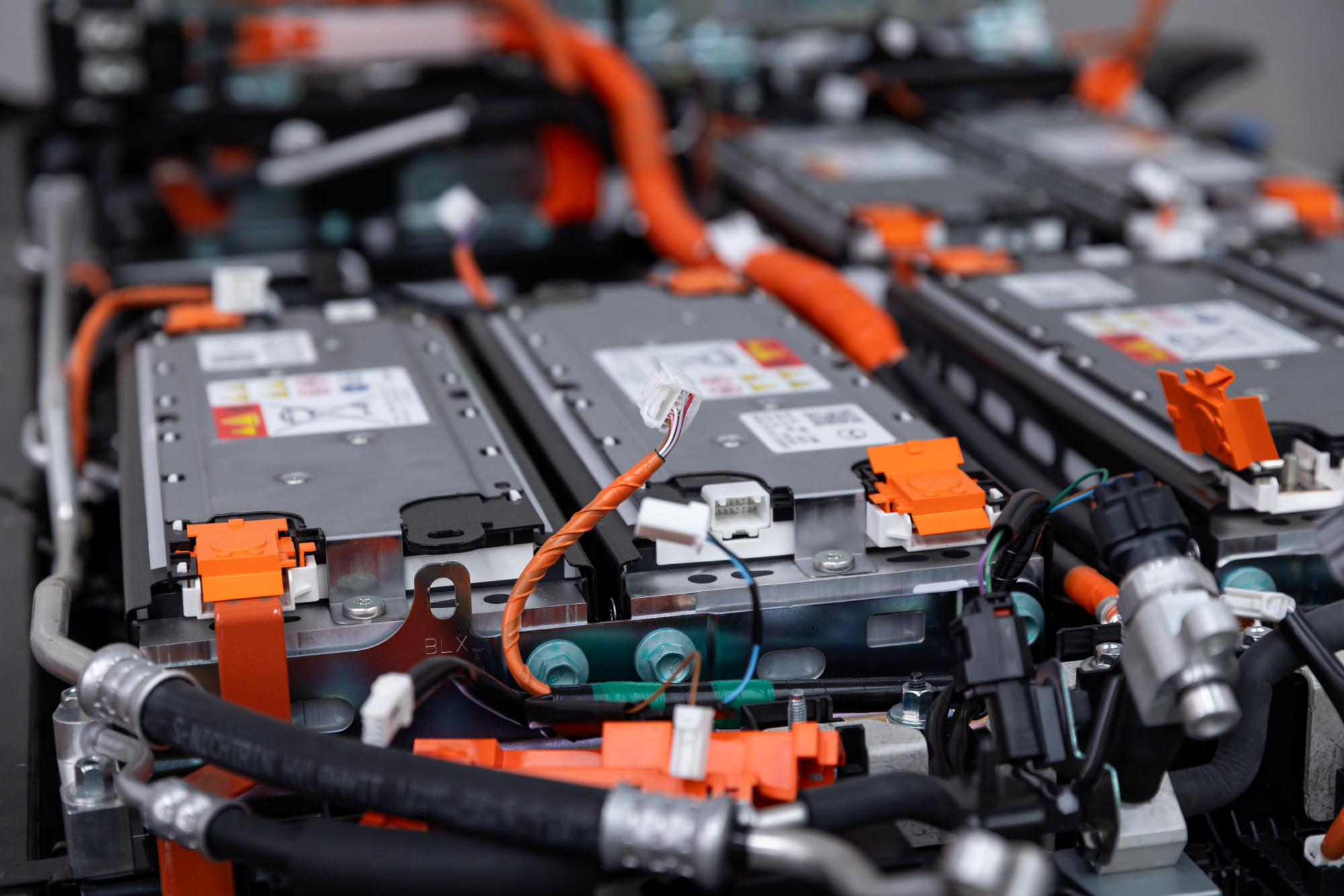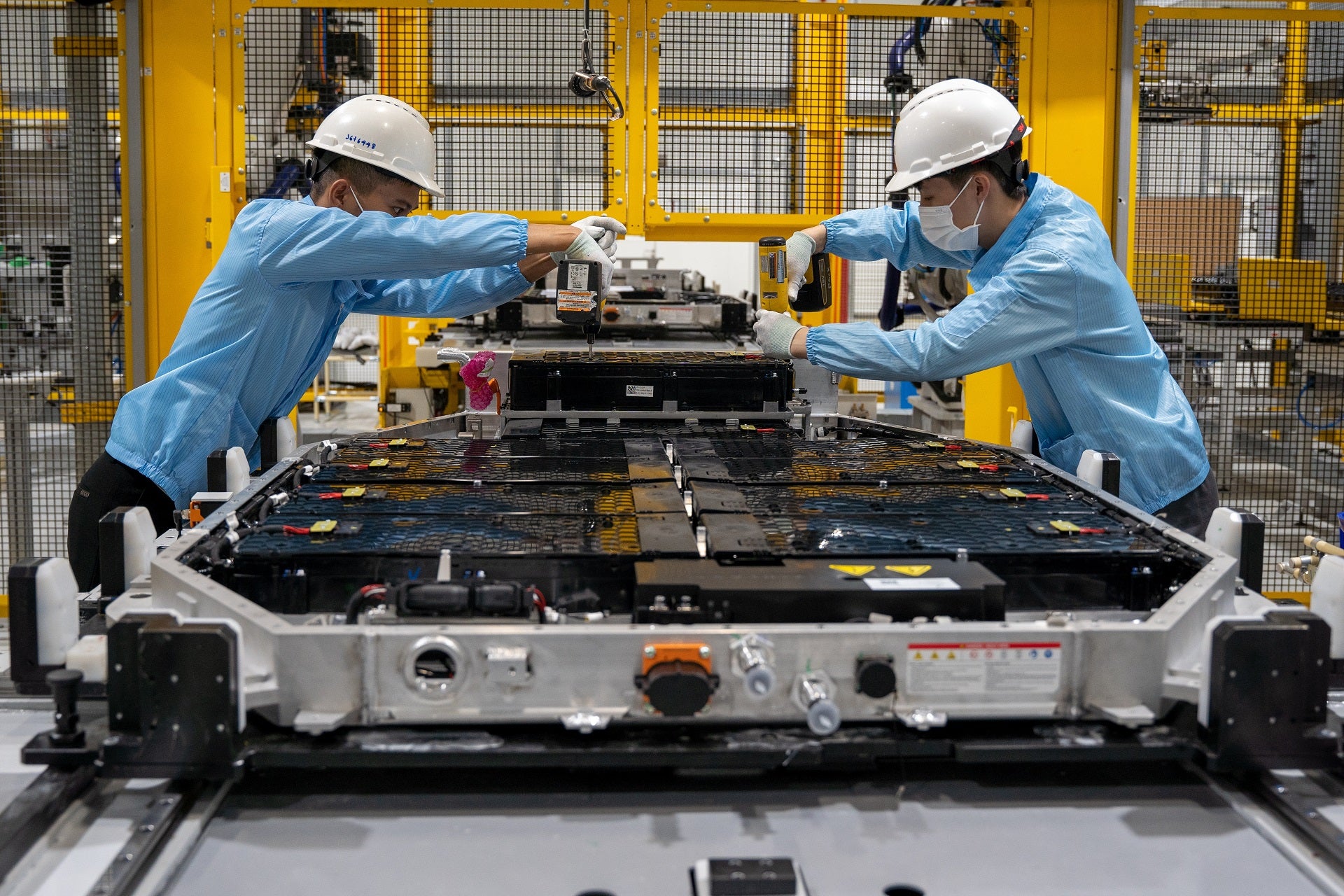EV Engineering Services Along the Battery Lifecycle
A holistic battery stewardship scheme brings together multiple, complementary services along the EV battery lifecycle. Infinitev focus on the value-add engineering services such as warehousing, triaging, and repairing high-voltage EV battery systems. We partner with specialists in the fields of logistics and end-of-life processing to deliver a complete program for our customers. We've done the hard work of establishing the networks and infrastructure so you don't have to.

Partner spotlight
Let's chat if you'd like to join us on our mission to create a circular economy for EV batteries

Our SafetyCheck is a physical inspection of the EV battery to ensure it is safe to handle, store and transport
- Check for visible signs of damage and leakage (notice teh dent on the battery shown - evidence of damage in transit)
- Arrange for make-safe as required
- Partnerships with end-of-life processors to safely and responsibly recycle ‘waste’ batteries and components
- Safe power down and disconnect, discharge to low state of charge for transport and storage
Our HealthCheck is a detailed diagnostic of the state of health and related performance characteristics down to cell level
- Characterisation to A/B/C grade of packs, stacks, modules, and cells, using sophisticated equipment
- Modelling of remaining battery life, and preventative module replacement to extend first life in vehicle
- Teardown and engineering evaluation of components to aid root cause analysis
- Value-add engineering services to local OEM teams – an extension of the ANZ operation
The most commonly asked questions about EV batteries
We field lots of questions about EV batteries and the services we provide to repair, reuse, repurpose and recycle them. Sharing is caring, so here goes - a list of the most frequently asked questions.
Can EV batteries be recycled?
Yes, EV batteries can be recycled. Recycling helps recover valuable materials such as lithium, cobalt, and nickel, reducing the environmental impact of battery disposal. However, there is a better way to minimise the environmental impact of EV batteries. The highest value of the battery is by using it in an electric vehicle as a traction battery (that is, to extend the battery's life in its original application). If reuse as traction battery is not possible, then it may be feasible to repurpose the battery to a different application like energy storage systems. These so-called second life batteries spread the manufacturing footprint over many years and defer the need to extract more raw materials from the earth to make new batteries for this second-life market. Our SafetyCheck and HealthCheck services allow us to determine the next-best use of EV batteries once they are taken from the vehicle.
How long do EV batteries last?
Hopefully the battery will last the life of the vehicle. But like any automotive parts, high-voltage electric vehicle batteries can deteriorate over time. The lifespan of EV batteries varies depending on factors such as usage patterns, temperature conditions, and the specific battery chemistry. Generally, most EV manufacturers warranty their batteries for around 8 to 10 years and/or a certain number of miles/kilometers, typically ranging from 160,000 to 200,000 kilometers. Some manufacturers also offer a State Of Health (SOH) guarantee, typically around 70%. SOH measures a battery's maximum charge compared to its rated capacity. For example, a battery with a maximum charge of 56kWh on a rated capacity of 70kWh is 80% (56/70 * 100%). Infinitev's Fast HealthCheck is a fast (3-minute) diagnostic of your EV's battery health (measuring SOH and other relevant health parameters) without the need to remove the battery from the vehicle.
How do I extend the lifespan of my EV battery?
To extend the lifespan of your EV battery, it's important to avoid frequent deep discharges, minimise exposure to extreme temperatures, and use appropriate charging methods. Additionally, keeping the battery within the optimal state of charge (around 20% to 80%) and avoiding frequent fast charging can help prolong its life. If you're unsure about the current condition of your battery, visit your dealer for a scan or talk to us about our Fast HealthCheck - a detailed diagnostic service and battery appraisal in under 10 minutes.
What is the cost of replacing an EV battery?
The cost of replacing an EV battery varies depending on factors such as the vehicle model, battery size, and manufacturer policies. Most electric vehicles in New Zealand and Australia are still under warranty, so check the warranty conditions and contact your dealer if you think the battery might be in need of replacement. If your vehicle is out of warranty, then your local dealer will likely charge you tens of thousands of dollars. The high cost reflects the specialist skill required to do the work, the cost of importing a new battery, and the labour to do the job well. At Infinitev, we are developing a range of replacement batteries for popular vehicles like Mitsubishi Outlander PHEV SUV, Nissan Leaf, and relative newcomers like BYD Atto3 so that EV owners can keep their cars for longer without breaking the bank.
Can I upgrade my EV battery?
We get this question quite a lot, especially from people who own (and love!) early-generation electric vehicles like the first Nissan Leaf. While aftermarket options for EV battery upgrades exist, they may be limited and vary depending on the vehicle make and model. Aftermarket upgrades should be approached with caution, as they may void warranties or compromise vehicle safety and performance. It's important to understand that the entire vehicle is part of the high-voltage system and changing one component, the battery, without updating the other components in the interconnected system may lead to unintended issues. At Infinitev, we prefer to swap like with like - our remanufactured EV batteries are technically identical to the original battery and designed for optimum system performance.
What are the different types of EV batteries available?
And our fave follow-up question - can I change mine from X to Y? Let's answer the main question first. There are several types of EV batteries available, with the most common being some variety of lithium-ion chemistry. Within li-ion, variations include Nickel-Metal Hydride (NiMH) - typically used in older hybrids, Lithium Iron Phosphate (LiFePo4), Lithium Nickel Manganese Cobalt (NMC), and Lithium Cobalt Aluminum Oxide (NCA). Each type has its own characteristics in terms of energy density, cost, and performance. And in the very fast-moving world of battery tech, we see many new chemistries and form factors being explored. At Infinitev, it's our job to keep up with the latest in battery tech, and to be ready with our engineering services to reuse, repurpose and recycle all EV batteries. To answer the change-chemistry question - technically this is possible, but you will likely struggle to find a readily available solution from a reputable battery manufacturer that comes with a decent warranty and proven safety record. Safety has to be your #1 consideration here.
How does fast charging impact EV battery health?
Fast charging, while convenient, can impact EV battery health over time due to increased heat generation and stress on the battery cells. Frequent use of fast chargers may accelerate battery degradation, leading to reduced capacity and lifespan. We'd recommend to use fast charging sparingly and prioritise slower charging methods for daily use.
What is the expected degradation of EV batteries over time?
There is no hard and fast rule here. The degradation rate of EV batteries varies depending on factors such as battery chemistry, usage patterns, and environmental conditions. On average, EV batteries may lose around 2-3% of their capacity per year, although newer battery technologies and improved thermal management systems are reducing degradation rates in modern EVs.
How does regenerative braking affect EV battery life?
Regenerative braking, which captures and stores energy during braking or coasting, can help extend EV battery life by reducing wear on the brake pads and minimising energy loss. However, frequent use of regenerative braking at high speeds or on steep descents may increase the thermal load on the battery, potentially impacting its longevity. What's that phrase again? Too much of a good thing...
Can extreme temperatures affect EV battery performance?
Yes, extreme temperatures, both hot and cold, can affect EV battery performance and lifespan. High temperatures can accelerate battery degradation, while cold temperatures can reduce range and efficiency. It's essential to park your EV in shaded areas during hot weather and pre-condition the battery in cold weather to mitigate these effects.
Did we miss a question? Get in touch!

Why Infinitev?
What sets us apart is that we orchestrate the full suite of services throughout this circular economy for EV batteries.
Throughout the process we ensure full traceability, so you know exactly where each module ends up and you're ready for when Battery Passport regulations come into effect.













